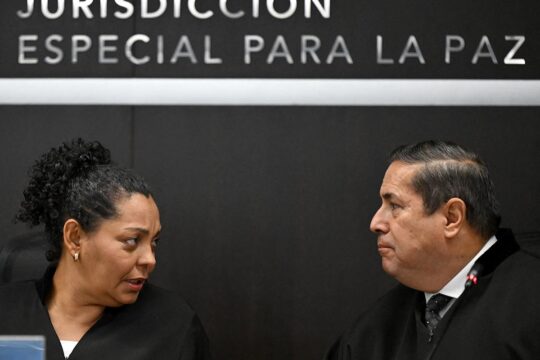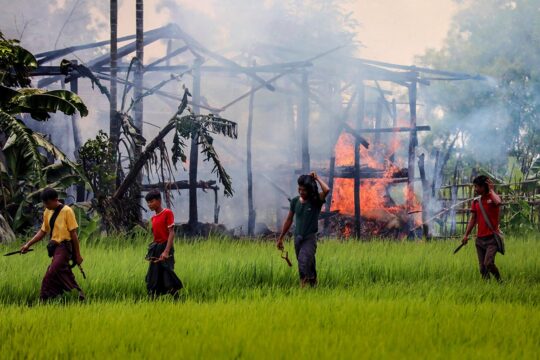Colombian President Juan Manuel Santos and the leader of the FARC rebels, Timoleon "Timochenko" Jimenez, are due to sign a historic peace deal Monday to end a five-decade war.
The former enemies will sign the accord at 5:00 pm (2200 GMT) at a ceremony in the colorful colonial city of Cartagena on the Caribbean coast, the government said.
Santos will open the day's events with a tribute to the Colombian military and police at 8:00 am, followed by a prayer for peace and reconciliation at an 18th-century Catholic church in Cartagena's old town.
The guests will include UN Secretary-General Ban Ki-moon, US Secretary of State John Kerry and an array of Latin American leaders -- notably Cuban President Raul Castro, whose country hosted the nearly four-year-long peace talks that produced a final deal on August 24.
The 2,500 expected attendees have been invited to wear white.
Once the peace agreement is signed between the rebels and the government, the European Union will temporarily suspend the FARC from its list of terrorist organizations, the bloc's ambassador in Bogota, Ana Paula Zacarias, told RCN television.
The group could be definitively removed from the blacklist after a six-month review process.
Colombia's second-largest rebel force, the leftist National Liberation Army (ELN), agreed to hold fire ahead of the referendum.
The government has yet to begin planned peace talks with the Cuban-inspired ELN, saying it must first stop kidnappings.
The FARC, a Marxist guerrilla group, launched its war on the Colombian government in 1964, in the aftermath of a peasant uprising that was brutally put down by the army.
Over the decades, the conflict has drawn in several leftist rebel groups, right-wing paramilitaries and drug gangs, killing 260,000 people, leaving 45,000 missing and uprooting 6.9 million.
Such guerrilla armies were common across Latin America in the latter half of the 20th century. But now, 25 years after the Cold War, Colombia's is the last major armed conflict in the Americas.
FARC delegates unanimously ratified the deal Friday at a national conference in their traditional stronghold in southeastern Colombia.
"The war is over," declared their chief peace negotiator, Ivan Marquez, to a burst of applause and cheers.
Under the deal, the FARC is now to relaunch as a political party.
Timochenko, 57, whose real name is Rodrigo Londono, is expected to remain its leader.
- Last step: referendum -
The rebels came to the negotiating table after being weakened by a major army offensive led by then-defense minister Santos, who served in the post from 2006 to 2009 before becoming president.
After an army raid killed the previous FARC leader, Alfonso Cano, in 2011, Timochenko wrote to Santos proposing fresh peace talks -- the fourth such effort, following failed attempts in 1984, 1991 and 1999.
The new talks opened in Cuba in November 2012.
After years of halting progress, delegates concluded a final, 297-page accord last month.
It covers justice and reparations for victims of the conflict, land reform, the FARC's relaunch as a political party, disarmament, fighting the drug trafficking that has fueled the violence in the world's largest cocaine-producing country, as well as implementing and monitoring the accord.
It grants an amnesty for "political crimes" committed during the conflict. But it will not cover the worst atrocities, such as massacres, torture and rape.
Those responsible for such crimes will face up to 20 years in prison, with lighter sentences if they confess.
The FARC's estimated 7,500 fighters are to leave their mountain and jungle hideouts and disarm in a UN-supervised process.
Monday's signing ceremony is the second-to-last step in ratifying the peace deal. Colombians will vote on it in a referendum on October 2 -- recent polls show the "Yes" camp in the lead.





